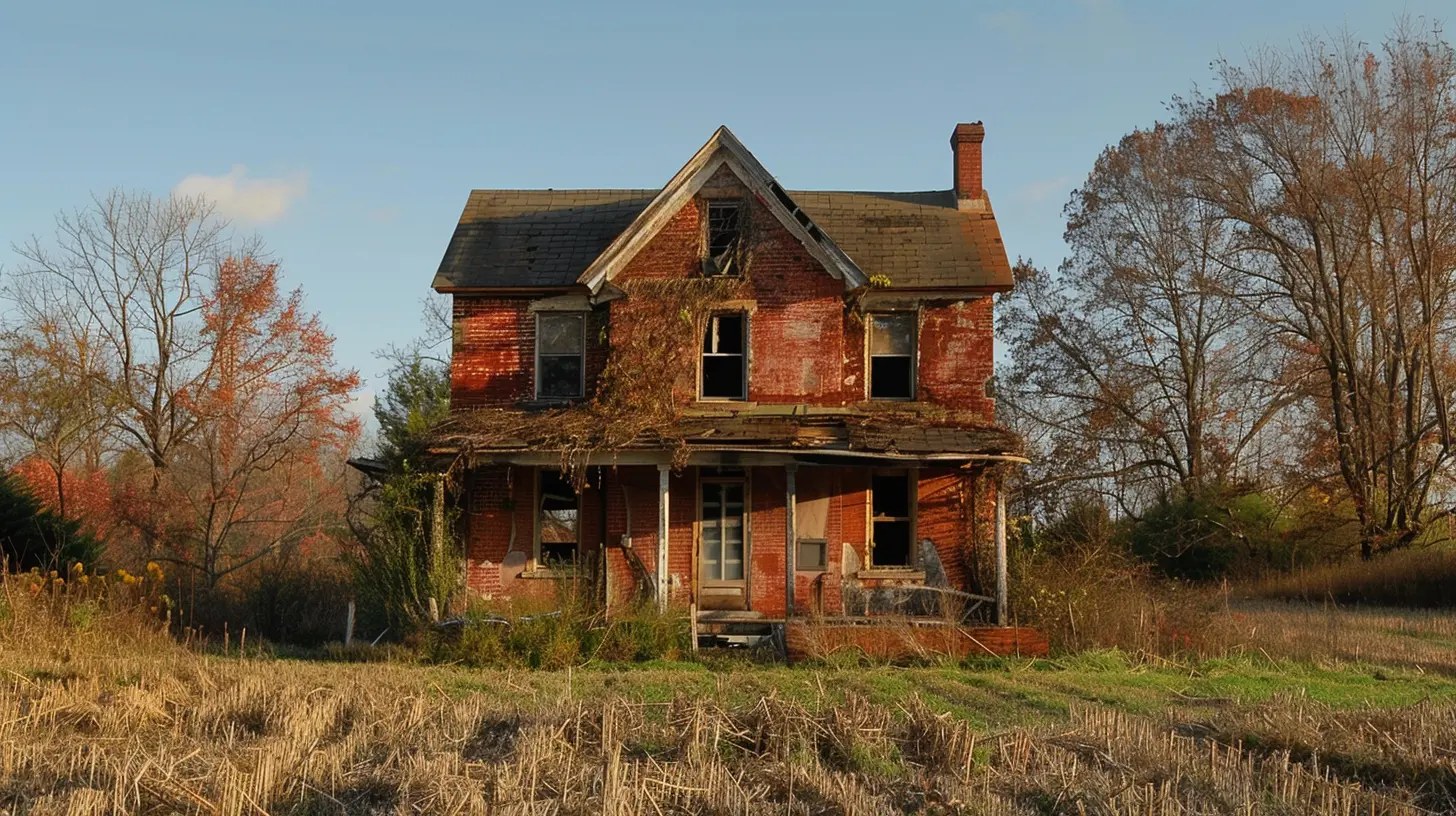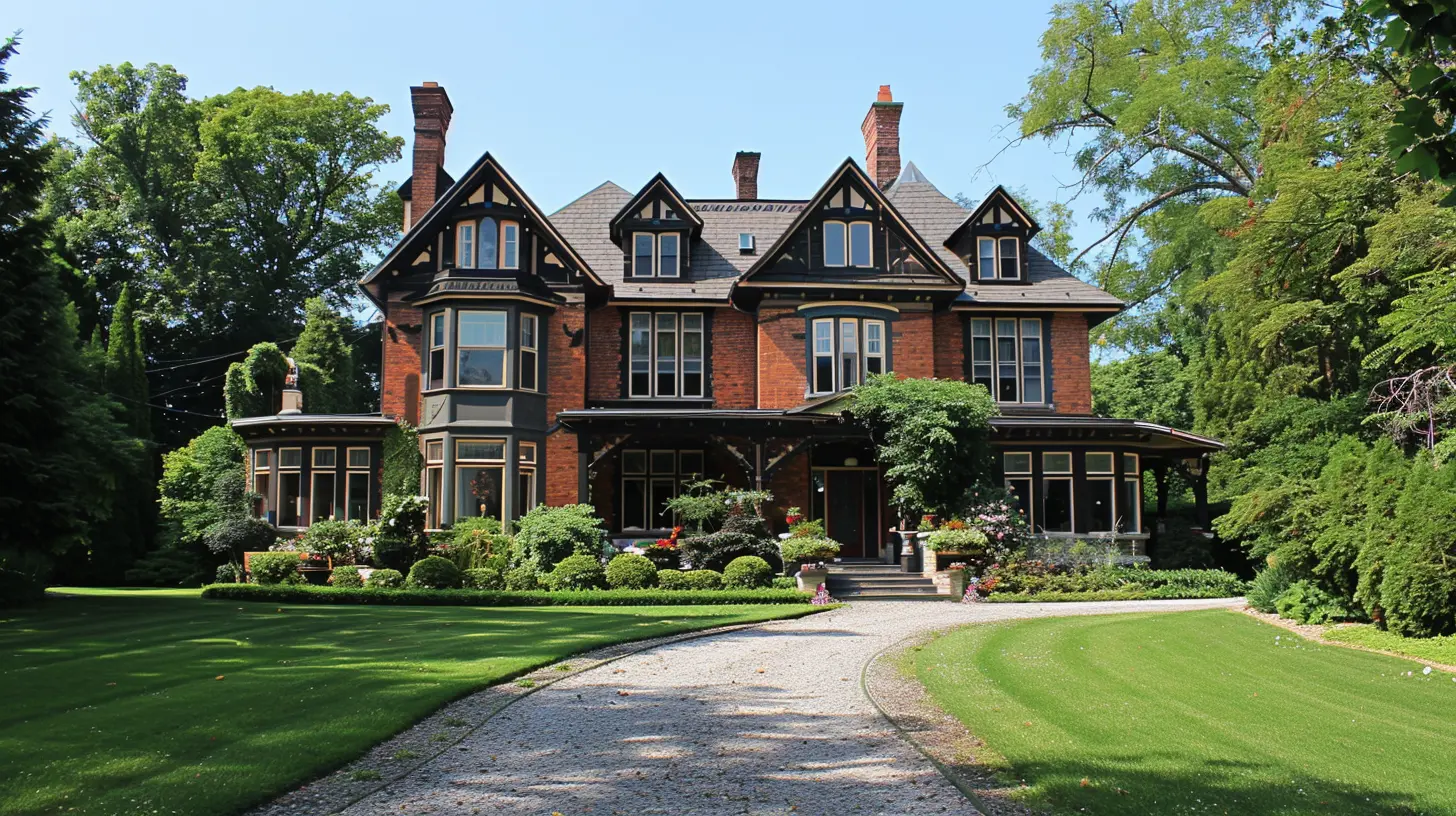How to Determine Property Value Before an Auction
8 April 2025
Buying a property at an auction can be thrilling—like scoring a rare gem at a steal. But let’s be honest: it’s also nerve-racking. What if you overpay? What if the property isn't worth the bid? If you're diving into the world of property auctions, you need to go in armed, especially when it comes to understanding the real value of the property. Skipping this step is like buying a used car blindfolded. Would you risk it? Probably not.
So, how do you determine a property’s value before an auction? Let’s break it down step by step so you can walk into that auction room (or log in for an online auction) full of confidence.
Why Is Knowing a Property’s Value So Crucial?
Before we even get into the "how," let’s talk about WHY it’s important to assess a property’s value beforehand.Look, auctions are fast-paced, and emotions can run high. Picture this: the gavel’s about to drop, your heart’s racing, and suddenly, you’re in a bidding war. If you don’t know the property’s actual value, it’s easy to end up in over your head. The goal here isn’t just to win the auction—it’s to secure a property at a smart price that aligns with its real worth.
In real estate, knowledge is power. And in auctions, it’s your safety net. 
Step 1: Research the Local Real Estate Market
If you’re serious about understanding a property’s value, the first step is to become a bit of a local market detective. Yep, I’m talking about putting on your magnifying glass and doing your homework.Start by checking out recent sales in the area. Look for properties that are similar to the one you’re eyeing—think size, type, condition, and location. These are called "comps" (short for comparables). If a three-bedroom house in the same neighborhood sold for $300,000 last month, that gives you a pretty good ballpark figure.
Tools like Zillow, Redfin, or Realtor.com can be your best friend here. But don’t just stop there. Call local real estate agents—they’re basically walking encyclopedias of market trends. Ask them what they think the property could be worth. 
Step 2: Assess the Property’s Condition
You wouldn’t buy a car without popping the hood, so why even think about bidding on a property without knowing its condition?Sure, some auction properties might be sold as-is, and you might not get a full inspection. But there’s still a lot you can gather from a little legwork. Drive by the property if you can. Look out for red flags like a sagging roof, overgrown lawn, or boarded-up windows. Dig a little deeper into the property’s description and photos (if available) on the auction listing site.
Remember, a property that looks like a fixer-upper will undoubtedly cost more in repairs than one in prime condition. That’s not necessarily a bad thing—some people love a good project—but knowing the condition helps you factor those costs into your budget. 
Step 3: Check the Property’s Legal Status
This one’s a biggie, and it’s often overlooked. Properties sold at auction can come with legal baggage. I’m talking liens, unpaid taxes, HOA fees, or other debts tied to the property that you might inherit if you win the bid. Yikes, right?Ask for the property’s title report and review it carefully. Many auction platforms will give you access to this information, but if they don’t, it might be worth paying for a title search. Better to spend a little upfront than get blindsided by legal issues later.
Step 4: Leverage a Real Estate Appraisal
Still uncertain about the property’s value? Consider hiring an appraiser. Sure, this might cost a few hundred bucks, but it could save you thousands in the long run.An appraiser will evaluate the property’s physical condition, location, and comparable sales in the area to give you a professional, unbiased estimate of the property’s market value. Think of it as getting a second opinion from a pro.
Step 5: Estimate Renovation Costs
Let’s say the property isn’t in mint condition—it needs a little love (or maybe a lot of love). Whether it’s a leaky roof, outdated fixtures, or a full-on kitchen remodel, you need to factor renovation costs into your equation.Get a contractor to give you an estimate, or better yet, come up with a rough ballpark figure based on the property’s condition. Be realistic! What looks like a "quick fix" can quickly snowball into a money pit. And don’t forget to account for permits and other hidden costs.
Step 6: Set Your Budget and Stick to It
Here’s some tough love: auctions can be a trap if you let your emotions run wild. Bidding wars are exciting, but they can cloud your judgment.Once you’ve done all the legwork to determine the property’s value, it’s time to set a budget—and I mean a hard, no-exceptions budget. Include the property’s market value, renovation costs, potential legal fees, and a little extra cushion for unexpected surprises.
Write that number down and tattoo it onto your brain (okay, maybe not literally). When you’re in the heat of the moment, having that budget as your anchor will save you from bidding yourself into financial regret.
Step 7: Account for Market Trends
The real estate market isn’t static; it’s like the stock market—always moving. If property values are rising in the area, you might need to adjust your expectations. Conversely, if the market’s cooling down, you could snag a bargain.Follow local news, keep tabs on interest rates, and stay informed about broader market trends that could affect property prices. Knowledge of the market’s trajectory can give you an edge when determining how much you’re willing to pay.
Step 8: Understand Auction Dynamics
Finally, take a moment to understand how auctions work. The rules, dynamics, and pacing of auctions can all influence a property’s final price.Some auctions allow you to place pre-auction offers, while others require you to register and provide a deposit. Additionally, auction platforms often have fees that winners are required to pay on top of their bid. These fees can range from a few thousand dollars to a percentage of the sale price, so make sure you factor them into your calculations.
And here’s a pro tip: don't fall for the myth that auction properties are automatically "cheap." Some end up selling for more than their market value, especially if multiple bidders get competitive.
A Quick Checklist for Determining Property Value Before an Auction
1. Research comparable sales in the neighborhood.2. Inspect the property’s condition (to the extent possible).
3. Review the property’s legal status for any liens or debts.
4. Consider getting a professional appraisal.
5. Estimate renovation and repair costs realistically.
6. Set a firm budget and stick to it like glue.
7. Stay aware of market trends in the area.
8. Factor in auction-specific fees and dynamics.
Final Thoughts
Determining a property’s value before an auction isn’t rocket science, but it does take a bit of time, effort, and research. The more thorough you are, the less likely you are to overpay or end up with buyer’s remorse.Remember, the goal isn’t just to "win" the auction—it’s to make a smart real estate investment. So go in prepared, armed with all the knowledge you’ve gathered, and you’ll increase your chances of scoring a property that’s worth every penny.
Good luck—you’ve got this!
all images in this post were generated using AI tools
Category:
Real Estate AuctionsAuthor:

Lydia Hodge
Discussion
rate this article
7 comments
Zevan McPherson
Determining property value before an auction requires thorough research and analysis. Consider recent sales in the area, the condition of the property, and local market trends. Engaging a real estate professional can provide valuable insights, ensuring you make informed decisions to maximize your investment potential.
May 11, 2025 at 6:52 PM

Lydia Hodge
Absolutely! Thorough research, including recent sales, property condition, and market trends, is essential for accurate valuation. Consulting a real estate professional can further enhance your insights and decision-making.
Rhiannon Ramirez
Great tips! Understanding property value really makes a difference—it's like bidding with confidence on your future home!
April 29, 2025 at 3:53 AM

Lydia Hodge
Thank you! I'm glad you found the tips helpful—bidding with confidence is key to securing your future home!
Alyssa Russell
Forget guessing games! Do your homework, check the comps, and consult the pros. If you’re not ready to play, sit this auction out—nobody wants a clueless bidder!
April 18, 2025 at 8:27 PM

Lydia Hodge
Absolutely! Proper research and professional advice are essential to confidently navigate property auctions. Knowledge is power!
Bear Nguyen
Unlock the secrets behind property value—what hidden factors could reshape your auction strategy?
April 16, 2025 at 3:39 AM

Lydia Hodge
Hidden factors like neighborhood trends, property condition, and local market dynamics can greatly impact property value. Understanding these can refine your auction strategy.
Starling Lawson
Great article! Understanding property value before an auction is crucial. Your insights on research methods and market trends are incredibly helpful for buyers. Thank you!
April 15, 2025 at 3:12 AM

Lydia Hodge
Thank you for your kind words! I'm glad you found the insights helpful. Happy bidding!
Mia Gilbert
This article raises fascinating points about assessing property value before an auction. I'm intrigued by the various factors that can influence pricing, from market trends to property condition. It's essential to approach this process with an open mind and thorough research. Can't wait to explore these strategies further!
April 12, 2025 at 10:26 AM

Lydia Hodge
Thank you for your insightful comment! I'm glad you found the points about assessing property value intriguing. Thorough research is indeed key to making informed decisions at auctions. Happy exploring!
Dulce McQuillan
Understanding property value before an auction is crucial. Consider factors like location, market trends, and comparable sales. Accurate evaluations empower buyers to make informed bidding decisions and secure the best deal.
April 9, 2025 at 6:26 PM

Lydia Hodge
Absolutely! Understanding property value is key for making informed bids at auctions. Factors like location, market trends, and comparable sales should be carefully evaluated to ensure the best deal. Thank you for your insights!
MORE POSTS

The Role of Scent in Home Staging: How Aromas Can Influence Buyers

The Benefits of Living Near Cultural and Entertainment Districts

How to Handle Property Walkthroughs with Professionalism

Understanding the Role of Home Inspections in the Mortgage Process

Creating a Welcoming Atmosphere with Minimalist Staging

How to Downsize Without Feeling Like You’re Giving Up Too Much